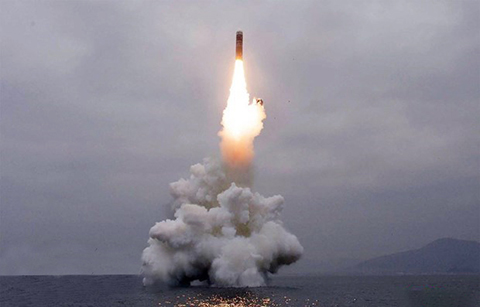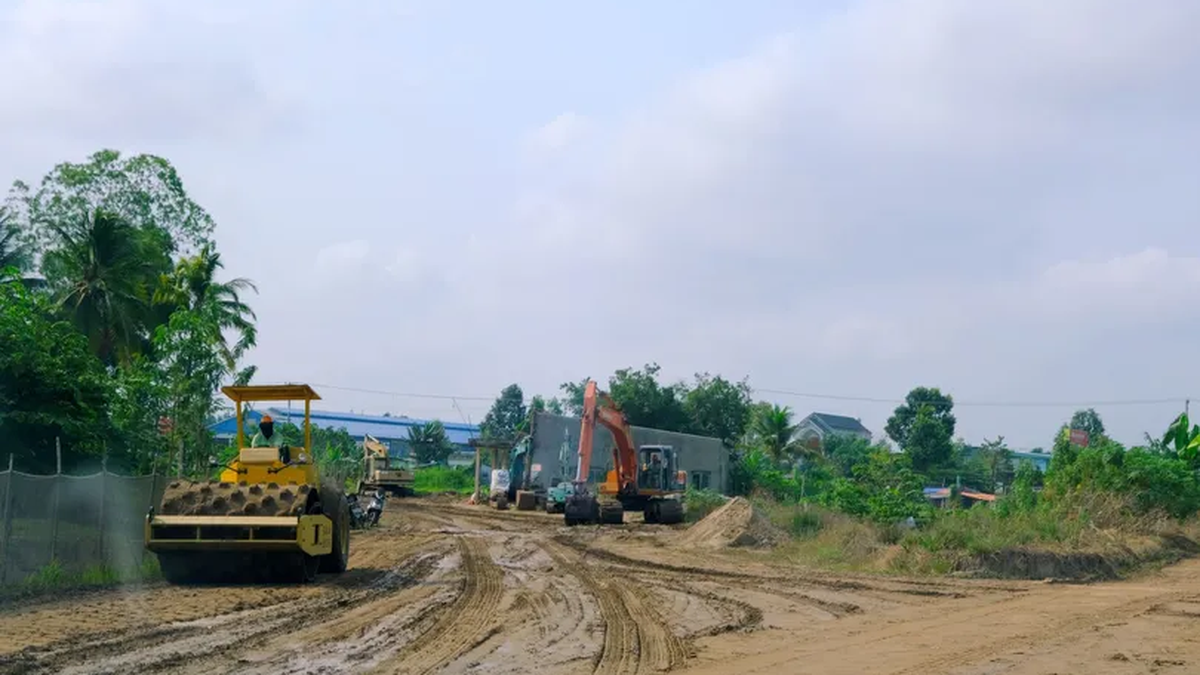North Korea's recent announcement that it will launch its first military spy satellite into orbit has caused concern and protests from South Korea and Japan.
A North Korean missile test. Photo: AFP
The North Korean Central News Agency (KCNA) quoted Vice Chairman of the Central Military Commission Ri Pyong-chol as saying that the country will launch a reconnaissance satellite in June to monitor the military movements of the US and its allies. “This is one of a series of reconnaissance measures that play an irreplaceable role in monitoring and supervising dangerous actions of the US and its allies in real time,” the official said. Ri also criticized the “reckless actions” of the US and South Korea, and affirmed that Pyongyang needs to expand its reconnaissance and information gathering measures, as well as improve its defensive and offensive weapons to enhance its combat readiness to defend the country. This is seen as a response to the US’s frequent hostile air reconnaissance activities over the Korean Peninsula and surrounding areas.
The move was confirmed by Japan's Ministry of Defense , which also announced that it had received orders to be ready to intercept any missile launched by North Korea if it was confirmed to fall on its territory. Preparations include deploying Patriot PAC-3 air defense missiles and Aegis destroyers equipped with SM-3 interceptor missiles.
Japanese Prime Minister Fumio Kishida said that any missile launch by North Korea, including satellite launches, violates United Nations Security Council resolutions and poses a serious threat to the safety of Japanese people.
UN Security Council resolutions ban North Korea from testing ballistic missiles. However, Pyongyang says the ban does not apply to its civilian space program.
In a related move, Japan's Kyodo news agency recently reported that North Korea had informed the Japanese government of its plan to establish a dangerous maritime zone during the period. In addition, according to NHK, North Korea also informed the International Maritime Organization (IMO) of its satellite launch plan.
Meanwhile, according to South Korea's Yonhap news agency, North Korea has announced that it has completed preparations to mount its first military reconnaissance satellite on a rocket, and could launch it as early as June. North Korean leader Kim Jong-un recently inspected a non-permanent committee responsible for preparing for the launch of a military reconnaissance satellite and approved the committee's "future action plan."
The South Korean Foreign Ministry recently urged North Korea to withdraw its satellite launch plan and pledged to cooperate with the international community to respond to Pyongyang's provocations. At the same time, the South Korean National Security Council (NSC) convened an emergency meeting following information about North Korea's satellite launch plan. According to South Korean officials, NSC members discussed countermeasures after receiving a notification from the South Korean Joint Chiefs of Staff.
North Korea has launched two satellite-carrying rockets in 2012 and 2016, both of which flew over Okinawa Prefecture in southern Japan. Therefore, the preparations for launching a military spy satellite this time have caused particular concern to Japan, the US, and South Korea.
The US, South Korea and Japan all believe that North Korea’s satellite launches are just a “cover” for missile testing, as they use similar technology. This is a threat to the security of not only Japan but also the region. Pyongyang’s new move has made the already unstable Korean Peninsula even hotter.
HN synthesis
Source link

























![[Photo] National Assembly Chairman Tran Thanh Man visits Vietnamese Heroic Mother Ta Thi Tran](https://vphoto.vietnam.vn/thumb/1200x675/vietnam/resource/IMAGE/2025/7/20/765c0bd057dd44ad83ab89fe0255b783)









































































Comment (0)